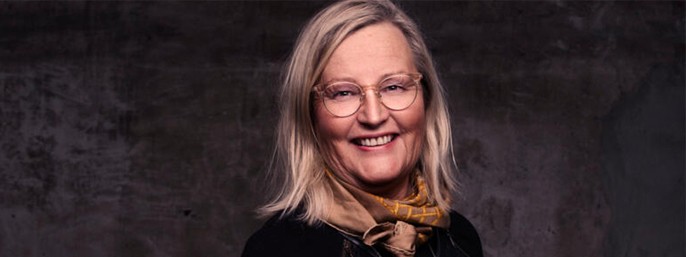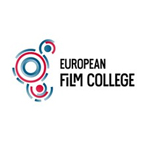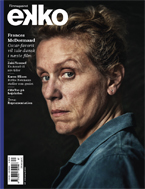Principal did not tell the truth in #MeToo case

This is an English version of Forstander talte usandt om #MeToo-sag.
A teacher at the European Film College, which is where many young filmmakers have their first encounter with the film industry, has been overstepping students’ boundaries for several years.
A number of students feel that they’ve been subject to sexual harassment and a misuse of power.
The school’s management refrained from intervening, even though former teacher Pia Bovin claims to have expressed concerns regarding the offending teacher in a conversation with principal Ellen Riis. Action was only taken when a nineteen-year-old student (here called “Nadine”) wrote a detailed complaint in February of 2020. The teacher (“Diego”) was dismissed a few weeks later, and Ellen Riis has told Ekko that she acted “quickly and with determination” and “attempted to support” the violated party.
But Nadine, who was invited to a conversation with the principal after filing her complaint, had a very different experience of the situation.
She says that the principal trivialized the situation during the meeting and tried to explain it away as a misunderstanding – a misinterpretation of Diego, who’s a “very loving and caring guy” who just likes “hugging”, as the principal put it according to the student.
Defends abusive teacher
Situations like this often hinge on who you believe.
But now, Ekko has come into possession of a complete sound recording of the 22 minute conversation (from which you can hear excerpts further down the page), which is in English as Nadine does not speak Danish.
A vocational psychologist and author of a book about sexual harassment assesses the conversation for Ekko here.
This sound recording substantiates the student’s account of the events.
“To the best of my knowledge, Diego has done nothing wrong,” says the principal, who has already spoken to the teacher about the complaint and requested that he “reconsider how he uses his body language and how he spends time with students”.
Ellen Riis presents this reprimand as her solution. She tries to close the case, but Nadine responds that the problem with Diego goes much deeper, and that several other students are in the process of documenting their experiences with the abusive teacher.
Then the conversation takes a turn.
“I thought this was a conversation and this was an e-mail between you and me. And that we would figure things out,” the principal says. “But what I’m hearing now is that you are saying that you are mobilizing other people?”
Ellen Riis asks what Nadine wants her to do. And she asks if the three of them – Ellen, Nadine, and Diego – shouldn’t have a conversation together.
An external professional
When Nadine rejects this suggestion, the principal suggests that the young student talk to the psychologist John Row, who is affiliated with the school. The intent is to have him perform a professional assessment and assist the principal in handling the case.
In Ekko #87, which includes a large article on the folk high school case, it was of paramount importance for Ellen Riis to deny that this was the case.
“You assert the claim that I tell the student to go see the psychologist so that I can receive an ‘evaluation’. This is a claim which I cannot accept, and which is not in accordance with the truth. I offered the student a conversation with the psychologist solely to support her after her experiences,” Ellen Riis states.
In #87, John Row, too, denies that he was charged with the task of assessing Nadine and reporting back to the school in Ebeltoft. This would conflict with his professional confidentiality as a psychologist and damage his professional endeavors and reputation.
“The conversation with the client was an offer of impartial assistance from the school,” says the psychologist regarding his conversation with Nadine.
Nadine says that she felt strange about the conversation with the psychologist.
“He tells me this story about not judging anyone on the basis of single actions. This is true, but in this situation, it feels as though he’s trying to make me question my judgment regarding the teacher,” Nadine says.
The sound recording reveals that the principal’s reasoning for having Nadine see the psychologist was to receive an evaluation – not to provide support.
“We have John Row, and I think you should have a talk with John Row because he is a professional from the outside. And I would like him to kind of give an evaluation from a professional side … how to deal with this,” Ellen Riis tells Nadine and adds:
“From my point of view I have to have somebody else listen to you and help me make decisions. Is that okay?”
Unsuitable for young people
In Ekko #87, Ellen Riis says that she’s sorry if Nadine feels abandoned and talked down to. She also admits that she should have focused more on the violated party.
“I would really like to apologize to her for that,” the principal says, but that means little to Nadine.
“It seems to me as if Ellen Riis is trying to save face. If she feels that she handled the situation incorrectly, which as I see it, she did, it would have meant more to me if she had contacted me about it,” Nadine says today.
“Ellen makes it sound as though she handled things perfectly, while I misunderstood everything. It’s really frustrating to be accused of fabricating lies when she’s clearly the one doing so.”
At the time, Pia Bovin took the side of Nadine and the other violated students towards the school management. Shortly after the #MeToo-case, she was fired. Today, she warns young people and their parents against the European Film College.
“The school has turned out to be unfit to deal with young people. They made a strategy to appear sensible in the eyes of the public, but at the heart of the matter are some young people that need to be looked after,” Pia Bovin says.
“It’s serious that Ellen Riis, against her better judgment, says that she had no knowledge of the problems regarding Diego at all until Nadine complained. His behavior was normalized in a way that Ellen was content with,” Bovin continues.
“It’s even more serious that she sends Nadine to see the psychologist and then lies about the reason why. When you refer a student to a psychologist so quickly, you’re also implicitly saying that there’s something wrong with her. But there’s nothing wrong with Nadine, which I told her back then as well. She’s super strong and she did exactly what the adult teachers and employees at the school were unwilling to do.”
Clashing with core values
Pia Bovin is surprised that the European Film College has not made an official announcement about the case on its website or toward the students.
“Silence is the worst thing in a situation like this. Why don’t they send a message to the students in which they distance themselves from the abuse? The school is leaving the students with the task of processing what they’ve been subjected to. I’ve been contacted by a lot of previous students who are shocked. Only after reading the articles in Ekko are they beginning to understand that the discomfort they experienced at the hands of this transgressive teacher wasn’t their fault,” says Pia Bovin.
“But one thing is a teacher who’s misunderstood everything about educational authority and self-control. Another is the poor management, which is the true reason why such a culture of violation can emerge in the first place.”
“Today, nothing is being done to help the violated parties or to facilitate a candid conversation regarding these problems. The teachers and the employees at the school also knew about Diego’s behavior, but they’re more concerned about their own survival. They’re afraid of getting fired if they speak their mind. They’re failing the brave students who have come forward.”
Pia Bovin, who is a consultant at The Film Workshop in Copenhagen and a member of Danish Film Directors, is also disappointed with the film industry’s silence regarding the case.
“We’re telling stories about reality. We’re turning cameras and microphones toward the world, but as soon as they point toward ourselves, they need to be switched off immediately,” Pia Bovin says.
After this incident, the European Film College has introduced a code of conduct where “respect”, “honesty”, and “openness” have been declared the three core values of the school.
“It’s grotesque that Ellen Riis undermines these values with her dishonest and reserved approach when the school has just agreed on them to stamp out these sorts of incidents. She often speaks of her door being open, but it’s only open so that she can control the narrative. She writes her own story until proven otherwise,” Pia Bovin believes.
#MeToo amounts to death
John Row is an independently practicing psychologist in Grenaa, and his expertise is frequently utilized by the European Film College.
In the wake of this evidence, the psychologist maintains that he was not aware of the reason behind the conversation that Ellen Riis arranged with Nadine.
“Even if Ellen had asked me to assess, which she did not, I would have said no. Then I’d say that I could only help the student with her feelings, and then Ellen would have to tell her herself.”
– But why would Riis alter your role in this affair without telling the student?
“I don’t understand why you need to keep poking around in this. What do you get out of it? Do you realize the consequences it has for the teacher in question?”
– But what about the violated student? Isn’t it relevant to say that it’s the student – and not the principal – who’s telling the truth?
“No, I don’t think so. Think of all the other people involved in this. The #MeToo-movement is great, and we needed it, but already so many people in this world have died because of it.”
Words versus intent
At present, the European Film College is welcoming back students from all over the world after several months of Covid lockdown. Ellen Riis did not agree to a phone interview, but she agreed to answer questions by e-mail.
– Why have you vehemently denied Nadine’s statement that you asked her to talk to a psychologist so that he could perform an assessment and help you handle the case, when this is exactly what you did?
“No matter what our words were in this conversation, it was never my intent to ask the student to talk to a psychologist in order to report back to me with an assessment. And that hasn’t happened,” the principal writes and goes on:
“John Row has had a confidential conversation with the student, the contents of which were never shared with me. This was intended to support the student, and it was part of how I handled the whole affair. I have apologized before and I will apologize again if the student did not feel heard, or if this phrasing, or other ways I phrased myself in that conversation, might have cast doubt on my approach.”
Ellen Riis emphasizes that it was her intent to support the student and not to discredit her, neither then nor now, while attending to her human resources responsibilities at the same time.
“The most fundamental thing regarding this case is that the teacher in question did not teach any longer and was dismissed less than two weeks later as a result of the complaint. In my opinion, it’s a sign that I acted quickly and with determination and respect for the student’s experiences. I believe that it’s reasonable that you examine the case as a whole, and the consequences thereof, rather than focus on isolated and – I will admit – suboptimal phrases used,” Ellen Riis writes.
“We’ve learned a lot”
– What are your thoughts when an expert calls the conversation a prime example of how not to handle a #MeToo conversation?
“We’ve learned a lot from this case at the school. For that same reason, we’ve set various initiatives in motion so that we can now handle similar incidents – which will hopefully never occur again – in the best possible manner.”
“Today, I would handle this process in a different and hopefully better manner. But I still believe that the heart of the matter is that the student was taken seriously and that it had very pronounced and serious consequences for the teacher she felt had violated her.”
– Why hasn’t the school announced anything regarding the case on its website or in a letter to the students – current as well as former students?
“Our students have actually been informed in one of my weekly e-mails to them. After the lockdown, we’ll all see each other again this week, where, among other things, I’ll address the case and the initiatives we’ve set in motion to avoid similar situations. We’ll also be talking about our code of conduct and a system where everyone has the possibility to – also anonymously – report potential infractions of our values and rules.”
– Do you live up to the school’s core values: honesty, openness, and respect?
“Yes, I definitely believe that I do.”
– How can one trust in you when, in an important case which had consequences for a violated student, who felt as though she had been treated badly by you, you actually lie to the press?
“I’ll refer to my first response.”
Chairman in support
Susanne Brandt Nonbo, the school’s student manager, was also present at the meeting with Nadine. She has declined to make a statement.
Director Ole Christian Madsen, the chairman for the board of directors at the European Film College, did not wish to be interviewed either. But he did send a statement.
“As chairman of the board, I would assess that action was generally taken in quick and determined manner relative to the incident. The day after the conversation, the teacher in question was already removed from having anything to do with students,” the chairman writes and adds:
“I do not wish to discuss details that do not change this fact. There continues to be nothing that substantiates your – in my opinion insinuating – claim that John Row has passed along information regarding a confidential consultation.”
Translated by Sidsel Pedersen Minuva
The European Film College Case

2016, August
“Diego” is employed as a teacher at the European Film College.
2016, autumn
Several students experience Diego’s inappropriate behavior.
2017-2018
Student catches Diego having sex with a female student in a classroom. Diego’s relationship with the student “Eva” is well-known at the school.
2018, February
Ellen Riis is employed as principal.
2018, August
Eva moves into Diego’s school apartment. This is discussed between the teachers, but Riis accepts the arrangement.
2018, August
Teacher Pia Bovin allegedly tells Riis about problems regarding Diego, a claim that Riis now disputes.
2020, 17th of February
“Nadine” complains about Diego in an e-mail to Riis.
2020, 19th of February
The student Nadine is called in for a conversation with Riis and sent to a psychiatrist, where she feels as though she’s being assessed.
2020, 28th of February
Five students contact school management, telling similar stories about Diego.
2020, 2nd of March
During a meeting where the entire school is present, Riis says that Diego is leaving the school, without giving an explanation.
2020, 7th of April
Pia Bovin is dismissed by the principal.
2021, 18th of February
Ekko #87 is published, containing a major article and interview with Ellen Riis.
2021, 16th of March
Ekko publishes an excerpt of a sound recording in which Riis refers the violated student to a psychologist in order to receive a professional assessment.
The European Film College Case in Ekko

Coverage of the #MeToo-case at the European Film College in Ekko #87.
Receive a free gift when you buy a subscription.
Buy the magazine in kiosks or get it delivered.







Kommentarer